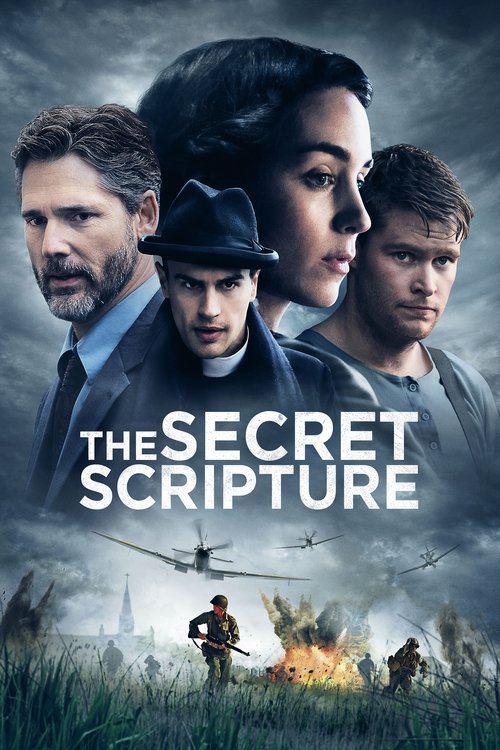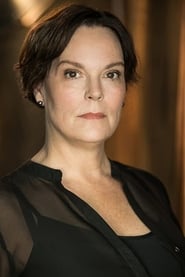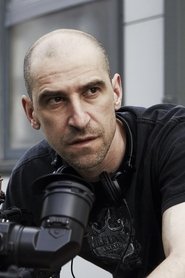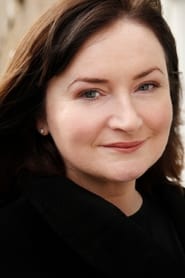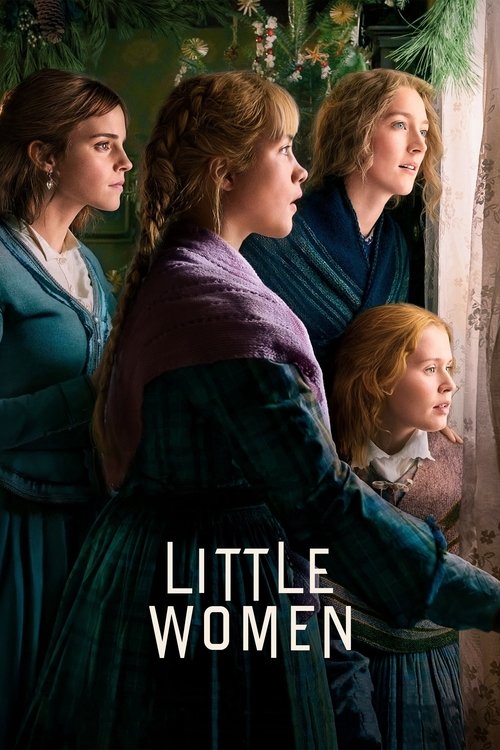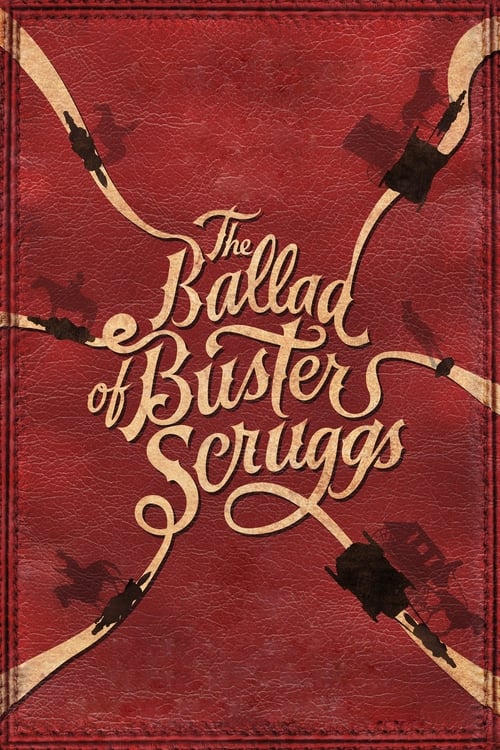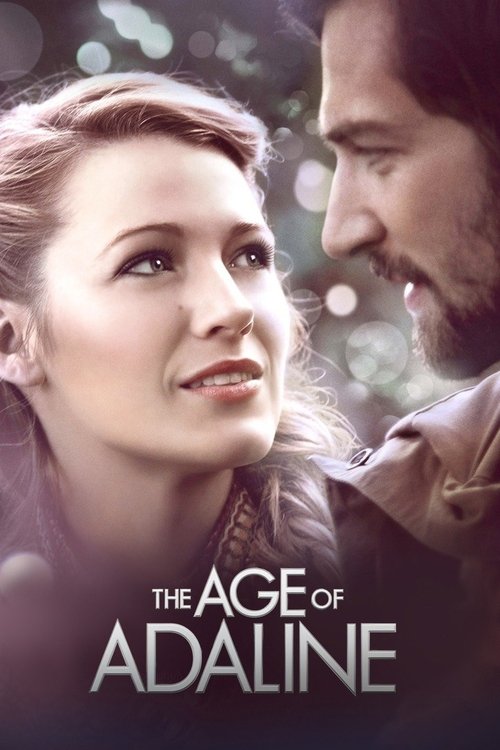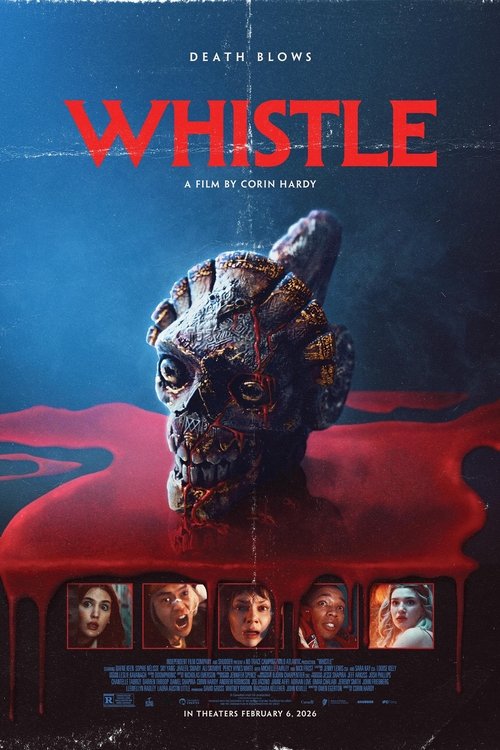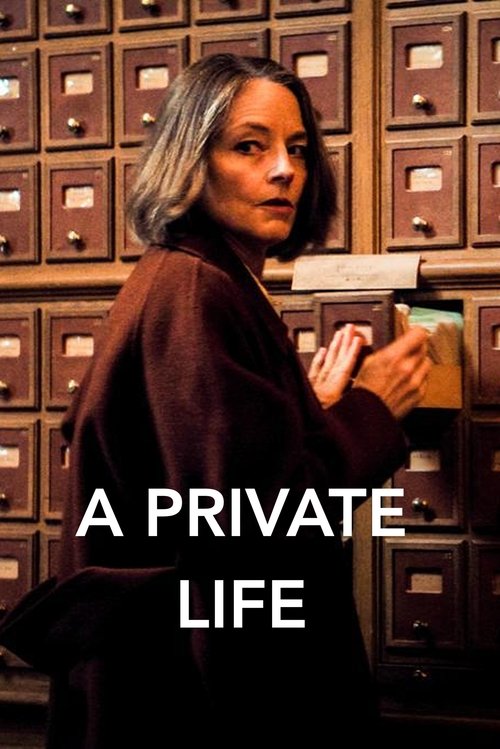
Ask Your Own Question
What is the plot?
The Sligo Regional Mental Hospital stands in the late afternoon light, its stone walls weathered by decades of Irish rain. The year is 2002, and the facility is scheduled for demolition. Inside, the corridors echo with the quiet footsteps of nurses and the distant murmur of patients. In a small, sunlit room, an elderly woman sits at a table, her hands moving with deliberate care across the pages of a worn Bible. Her name is Rose McNulty, and she has lived here for fifty years, since 1942. The ink on the Bible is faded, the drawings delicate, but the story they tell is vivid--her life, her secrets, her truth. She is writing not for herself, but for the world that never listened.
At the hospital's entrance, Dr. Stephen Grene steps out of his car, briefcase in hand. He is a psychiatrist, recently returned to his hometown after years away. The local Catholic Church has asked him to evaluate Rose McNulty's case, to determine whether she should be transferred to another facility or released. As he walks through the sterile halls, he feels the weight of the past pressing against him. He is not just a doctor here; he is a son, a man returning to sell his parents' home, to confront the ghosts of his own youth.
Rose looks up as Dr. Grene enters her room. Her eyes are sharp, her voice steady. "I didn't kill my baby," she says, her words cutting through the silence. "I've been here fifty years, and I've never said it before, but I'll say it now. I didn't do it." She gestures to the Bible. "Everything is in there. My life. My truth. If you want to know what happened, read it."
Dr. Grene takes the Bible, his fingers tracing the edges of the pages. He begins to read, and as he does, the story unfolds--not just on paper, but in his mind, in flashes of memory and emotion. The narrative shifts, the present dissolving into the past, to the year 1940, to a small village in the Irish Free State.
Rose McNulty is a young woman, orphaned and evacuated from Belfast during the bombing raids of World War II. She arrives in the village, her suitcase in hand, her eyes wide with uncertainty. Her aunt, Mrs. McNulty, runs a modest hotel and temperance establishment, a place where the rhythms of rural life are governed by tradition and gossip. Rose is beautiful, independent, and immediately the subject of attention. The men of the village--Michael McNulty, the Protestant grocer; Jack Conroy, the anti-British laborer; and Father Gaunt, the parish priest--all find themselves drawn to her.
At the local dance hall, the air is thick with music and the scent of sweat and perfume. Rose dances with Jack Conroy, their movements fluid, their laughter bright. Father Gaunt watches from the shadows, his eyes lingering on her. The priest approaches her later, his voice low, his intentions unclear. "You're a rare thing, Rose," he says, his hand brushing hers. "A woman like you doesn't belong here."
Rose deflects his advances, but the rumors begin to spread. The village is small, and secrets are currency. When Michael McNulty, the grocer, flirts with her, the gossip intensifies. Michael is Protestant, sympathetic to the British war effort, and soon he leaves to join the RAF. "I'll come back for you," he promises, his voice tinged with hope. But Rose knows the odds are against them.
The tension escalates when a fight breaks out between Father Gaunt and Jack Conroy. The cause is unclear--jealousy, pride, the clash of ideologies--but the result is the same. Rose is caught in the crossfire, her reputation tarnished. Her aunt, fearing further scandal, sends her to live in a deserted farmhouse outside the village. The isolation is crushing, but Rose finds solace in the quiet, in the rhythm of the land.
It is here that she meets Dr. Grene's father, a local doctor who visits her regularly. He is kind, attentive, and over time, a bond forms between them. Rose confides in him, shares her fears, her dreams. But the village is watching, and when she becomes pregnant, the whispers turn to accusations. "Who's the father?" they ask. "Is it the priest? The grocer? The doctor?"
Rose insists she doesn't know, that she was raped, but no one believes her. The baby is born, and soon after, the child dies. The official story is that Rose killed her own baby, but she denies it, her voice breaking with grief. "I didn't do it," she says, over and over. "I didn't do it."
The authorities take her away, to the Sligo Regional Mental Hospital. She is declared insane, her story dismissed. The years pass, and she writes her truth in the margins of a Bible, her only companion.
Back in the present, Dr. Grene reads the final pages of Rose's Bible. The story is complete, but the mystery remains. He confronts the hospital's administrators, demanding answers. "She's not insane," he says, his voice rising. "She's a victim. A woman silenced by a society that couldn't handle her truth."
The administrators are unmoved. "She's been here fifty years," one says. "She's comfortable here. Why upset her now?"
Dr. Grene persists, but Rose herself refuses to leave. "This is my home," she says, her voice steady. "I've lived here, I've written here, I've survived here. I won't go."
The hospital is demolished, the building reduced to rubble. Rose's Bible is preserved, a testament to her life, her struggle, her resilience. Dr. Grene stands at the edge of the site, the wind tugging at his coat. He thinks of his father, of the village, of the secrets that shaped his own life. He thinks of Rose, of the truth she carried, of the world that never listened.
The film ends with Rose's voice, reading from her Bible: "I didn't kill my baby. I didn't do it. And if you're reading this, know that I was here. I was real. And I survived."
The screen fades to black, the words lingering in the silence.
What is the ending?
In the ending of "The Secret Scripture," Rose, the protagonist, confronts her past and the traumas she endured in a mental institution. As she reflects on her life, she finds solace in her memories and the love she had for a man named Michael. The film concludes with Rose's acceptance of her past, and she is finally at peace, having reconciled her memories with her present.
As the film approaches its conclusion, we see Rose, now an elderly woman, living in a mental health facility. The narrative shifts between her present and flashbacks of her younger self, revealing the painful history that led her to this place.
In one poignant scene, Rose is visited by Dr. Grene, the psychiatrist who has been trying to understand her story. He is deeply moved by her written account, which details her life, her love for Michael, and the injustices she faced. Dr. Grene's empathy for Rose grows as he learns about the trauma she endured, including the betrayal by those she trusted and the societal stigma surrounding her mental health.
As Rose recounts her memories, we see flashbacks of her youth, where she and Michael share tender moments filled with love and hope. However, their romance is shattered by the societal pressures and the tragic events that follow. The film reveals that Rose was wrongfully institutionalized after being accused of a crime she did not commit, leading to years of suffering and isolation.
In the final scenes, Rose's memories become a source of strength for her. She finds peace in the realization that her love for Michael was genuine and that it transcended the pain of her past. The film culminates in a powerful moment where Rose, surrounded by the remnants of her memories, finally lets go of her anguish.
Dr. Grene, having understood the depth of Rose's suffering, decides to advocate for her release, recognizing that she deserves to live freely after years of confinement. The film closes with Rose sitting quietly, a serene expression on her face, as she embraces her memories, both joyful and painful.
In the end, Rose's fate is one of liberation and acceptance. She is no longer defined by her trauma but rather by the love she experienced. Dr. Grene's character also undergoes a transformation; he becomes a champion for those who have been wronged by the system, inspired by Rose's resilience. The film leaves viewers with a sense of hope, emphasizing the importance of understanding and compassion in the face of suffering.
Is there a post-credit scene?
The movie "The Secret Scripture," produced in 2017, does not contain a post-credit scene. The film concludes its narrative without any additional scenes or content after the credits roll. The story wraps up with the resolution of the main character's journey, focusing on her past and the impact of her experiences, leaving the audience with a sense of closure regarding her struggles and revelations.
What is the significance of the diary in The Secret Scripture?
The diary serves as a crucial narrative device in The Secret Scripture, revealing the inner thoughts and experiences of Roseanne McNulty, the protagonist. It chronicles her life from her youth in Ireland during the 1930s to her time in a mental institution. The diary not only provides insight into her traumatic past, including her forbidden love for a man named Michael, but also serves as a means for Roseanne to reclaim her identity and truth amidst the oppressive circumstances she faces.
How does Roseanne's relationship with Michael impact her life?
Roseanne's relationship with Michael is central to her character development and the plot. Their love is passionate yet fraught with societal and familial obstacles, particularly due to the disapproval of Roseanne's father and the societal norms of the time. This relationship ultimately leads to her being sent to a mental institution after a series of tragic events, including a betrayal that shatters her world. Michael represents both hope and despair for Roseanne, as their love is a source of joy but also the catalyst for her suffering.
What role does Dr. Grene play in the story?
Dr. Grene is a pivotal character in The Secret Scripture, serving as the psychiatrist who examines Roseanne in the mental institution. His character embodies compassion and curiosity, as he becomes increasingly invested in uncovering the truth behind Roseanne's past. Through his interactions with her, he begins to question the ethics of her confinement and the validity of the institution's treatment methods. Dr. Grene's journey reflects a moral awakening as he seeks to understand Roseanne's story, ultimately leading him to challenge the status quo.
How does the setting of the mental institution influence the narrative?
The mental institution is a critical setting in The Secret Scripture, representing both a physical and emotional prison for Roseanne. The oppressive atmosphere of the institution, with its stark walls and harsh treatment, contrasts sharply with the vibrant memories of Roseanne's past. This setting amplifies her feelings of isolation and despair, while also serving as a backdrop for her struggle to maintain her identity. The institution's environment reflects the societal attitudes towards mental health and women during the time, further complicating Roseanne's quest for freedom and understanding.
What events lead to Roseanne's confinement in the mental institution?
Roseanne's confinement in the mental institution is precipitated by a series of traumatic events that unfold throughout her life. After her passionate romance with Michael is discovered, her father reacts violently, leading to a tragic incident that results in Michael's death. Following this, Roseanne is wrongfully labeled as mentally unstable due to her emotional turmoil and the stigma surrounding her situation. Her father's influence and societal pressures culminate in her being committed to the institution, where she struggles to maintain her sense of self amidst the oppressive environment.
Is this family friendly?
"The Secret Scripture," produced in 2017, is not considered family-friendly due to its mature themes and emotional intensity. Here are some potentially objectionable or upsetting aspects that may affect children or sensitive viewers:
-
Mental Illness: The film explores themes of mental health, including the protagonist's experiences in a psychiatric hospital, which may be distressing for some viewers.
-
Abuse: There are scenes depicting emotional and physical abuse, particularly in the context of the protagonist's life and her relationships, which can be quite disturbing.
-
Trauma and Loss: The narrative delves into deep personal trauma, including loss and betrayal, which may evoke strong emotional reactions.
-
Violence: There are instances of violence, both implied and explicit, that contribute to the film's darker tone.
-
Historical Context: The film addresses the harsh realities of life in a mental institution during the mid-20th century, including stigmatization and mistreatment of patients.
These elements combine to create a film that is more suitable for mature audiences, as it deals with complex and often painful human experiences.

